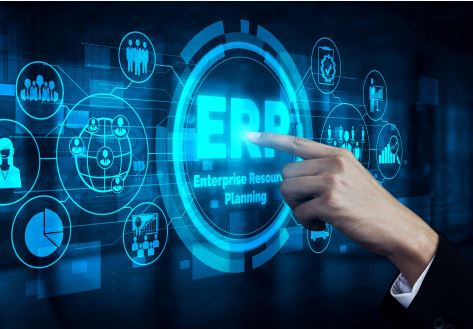
With the ever-evolving construction industry, almost every construction company strives to adopt advanced technology platforms, like enterprise resource planning (ERP), to optimize their business operations. ERP for Construction Industry is known to streamline all business processes by automating several aspects of operations and providing comprehensive financial understanding.
The construction sector is complex and ever-expanding, and efficient management is the best way to increase business profitability. However, not all ERP platforms are designed the same. Only ERP systems involving cost projections and over-runs and managing project lifecycle from bid to hand-over can be successful in the construction industry.
In this guide, you will uncover a few vital features that a high-performance construction ERP system must have to optimize and streamline your business.
Integration Estimation
Efficient management of expectations surrounding time, quality, and budget requirements is crucial for completing a construction project. Moreover, effectively managing data and information related to the progress of construction projects can help companies avoid delays, cost overruns, and many other issues that could impact profitability.
When dealing with target customers, accurately estimating their demand, purchasing behavior, and needs are key to managing their expectations. Construction industry-specific ERP system provides detailed analysis and forecasts by analyzing current data and historical records. Such platforms are an ideal solution to ensure the successful completion of projects on time and within the pre-determined budget while protecting the bottom line.
Advanced Accounting
Construction businesses require elements beyond conventional accounting and bookkeeping for comprehensive financial management. A high-performance ERP for Construction companies must include but not be limited to the following:
- Plant and equipment tracking
- Contractor and subcontractor management
- Debtor and subcontractor tracking
- operational inventory oversight
- Purchase or change inventory order management
- Cost reporting for assessing actual costs
An ERP system with these elements enables advanced and accurate accounting, allowing construction companies to leverage cost-effective solutions for improved profitability.
Plant, Material, and Equipment
The construction ERP application you are considering implementing in your company must be capable enough to simultaneously manage multiple projects, sites, materials, and equipment. It is essential due to the market’s highly competitive nature with slender margins.
Sharing resource optimally across multiple construction locations is key to acquiring maximum profitability and efficiency. And you can do the same with ERP software equipped with relevant features. Therefore, your ERP system must have elements to monitor many building components, like tools, materials, and workers’ labor.
Additional Payroll Options
When it comes to the estimation process, it’s important to optimally manage time and activity to get the job done within the approved budget. Accurate cost vs. budget and personnel information leads to proper tracking and reporting.
If you strive to achieve this level of detail in your construction company, implement an ERP system having multiple components, like real-time payroll processing, unit cost reports, multi-project capability, summary labor cost, unit productivity reports, direct labor cost control, and on-demand project cost/revenue consolidations.
A Detailed Financial Report
Accurately and timely reporting is another crucial aspect that can lead a construction company to success. However, construction companies find it challenging to manage reasonable profit and loss due to the complexity of certain business models. Still, you can access detailed financial reports with a construction ERP system tailored for a project-focused environment.
An ERP system with features like analyzing resource usage, managing balance sheets, tracking assets, and examining corporate reports is a perfect resource to access valuable insights into performance and operational efficiency. Ultimately, you can increase your construction company’s profitability by making quick, better business decisions with real-time actional information.
Safety and Health Management
This feature is crucial for maintaining employee safety. A responsible construction company will understand the significance of recording, investigating, and analyzing all incidents. A robust construction ERP system helps companies document what happened on-site with photos and reports. In addition, tracking incident data can help your organization to boost efficiency by providing a scorecard and OSHA reporting metrics.
Closing Remarks
Modernizing operations and reducing the time required for completing projects are two significant concerns in the construction industry. Deploying an ERP system in the construction businesses has become a major factor of this revolution to enhance a company’s performance and profitability in this digital world.
Construction industry-specific ERP systems having the above-discussed features can help streamline many core business processes, leading to impeccable benefits, such as improved customer satisfaction and loyalty, healthier financial performance indicators, and higher net profits.
Interesting Related Article: “What is Manufacturing ERP (Enterprise Resource Planning)?“

